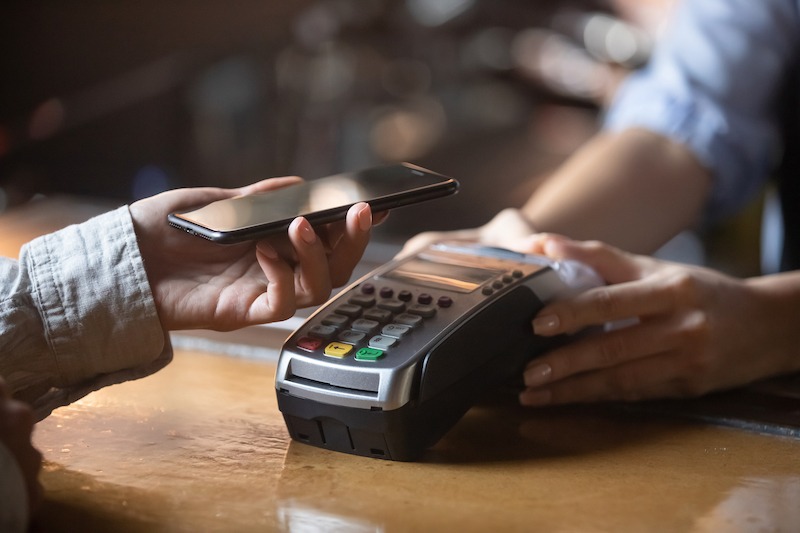COVID-19: The Upcoming Digital Tsunami in Retail
E-Commerce

June 8, 2020, 8:45 am
By Dr. Saeeda Jaffar, Managing Director and Head of Middle East, and Tanveer Awan, Managing Director, Strategy and Performance Improvement Practice, Alvarez & Marsal, Dubai
The boom in the GCC’s retail industry comes with a number of challenges, the newest of which is the pandemic
Over the past few years, ecommerce has witnessed an unprecedented growth across the GCC region changing the face of the retail industry. Some of the factors that has accelerated the uptake of online shopping include high digital penetration that offer fast and convenient shopping experiences, improved logistics and increased security for digital transactions. However, the great boom also brings its own set of challenges for both online and brick-and-mortar retailers, especially in the wake of the new coronavirus pandemic.
Today, ecommerce is set to position itself as the key driver of growth regionally for retail. The COVID-19 outbreak and 2020 will mark a tipping point for the adoption of ecommerce and mobile commerce platforms.
Online retailers continue to report an increase in demand, with the number of real-time orders and transactions higher than ever. The number of stores providing e-services for consumers in the UAE rose by 150% due to the pandemic, according to the Telecommunications Regulatory Authority (TRA). Moreover, the growth of e-stores is expected to continue growing in the coming days to meet the consumer demand.
A new era in retail is upon us
As the consumer behaviour changes, retailers will witness an increasing dependency on the online orders.
The fast-paced adoption of consumer technologies has presented shoppers with an array of digital touchpoints, which fundamentally altered their behaviour in physical locations. Shoppers expect to seamlessly transition from physical to digital channels, often in the same environment, while immersing themselves in retail spaces that help create memorable experiences ideal for sharing instantly for the purposes of social and online approval.
“Forward-thinking omnichannel retailers and the emergence of online-only brands offering strong digital propositions are exploiting these trends”
The consumer love affair with online shopping and the growing importance of the experience economy has collided with rising operating costs and over-supply of stores. Fundamentally, this has altered the economics of store-based retailing, putting intense pressure on legacy business models. This perfect storm has tested retailers, pushing many of them to breaking point.
While the situation may be grave, we have also found grounds for optimism. Physical retail remains hugely relevant, particularly for Millennials and Generation Z – a demographic set to become the biggest spenders in a decade. With COVID-19 pandemic, store operators endanger losing this sweet spot too as retail stores stay shut during lockdowns, resulting in the formation of new habits that significantly changes consumers’ buying behaviour across all demographics even when the epidemic is over.
Retailers need to be digitally agile
Digital transformation has paved the way for more sophisticated, multi-channel retail propositions, supported by increased uptake in smartphone usage and online shopping, ultra-convenient same-day home deliveries and efficient click-and-collect. The proliferation of digital technologies has fundamentally altered the fabric of the customer journey. This spike in B2C ecommerce across the GCC is of course due to existing online shoppers stocking up on essentials given the coronavirus outbreak and the lockdown imposed by the Government (to contain the spreading).
The COVID-19 crisis has clearly favoured omnichannel retailers when it comes to minimization of the negative impacts. Therefore, offline retailers must approach the lockdown period as an opportunity to build a robust online presence. Retailers with an online presence, must take advantage of the recovery trends by introducing inventive ways of meeting customer demands – be it establishing an Online-to-Offline (O2O) platform or building sophisticated digital logistics and payment reconciliation capabilities to be in the lead in this race to recovery.
Forward-thinking omnichannel retailers and the emergence of online-only brands offering strong digital propositions are exploiting these trends while advantageously amassing vast quantities of consumer data. Efforts by retailers, who were late to the party, mimicked the mechanics of offering an online proposition often proved dilutive, as additional infrastructure and investment were deployed to service the same customer and the same order.
“The experience economy is increasingly prominent as people reassess the value they attach to material possessions”
The experience economy
As physical and digital realms merge, the experience economy is increasingly prominent as people reassess the value they attach to material possessions.
Although the shift towards experiences has arguably come at the expense of retail, its role in the customer journey is undeniable. While consumers claim to spend more time browsing products online than they do in-store, the relative importance in the discovery and research of retail products is more influential in physical locations, particularly flagship destinations where ‘experiences’ matter. Retailers and landlords alike recognise that staging meaningful experiences is critical in the moments that matter: moments of discovery; moments of desire; and moments of action.
Moreover, shoppers expect digitally enhanced physical environments; Instagram walls, Facebook check ins and Snapchat codes that inspire, excite and offer experiences that cannot be replicated online.
In conclusion, a sharp focus on strategic transformation is needed to burn its way through the challenges, declaring itself the overriding priority for retail and leisure. The race is on to pivot business models fit for tomorrow’s increasingly digital, experience-driven age.










